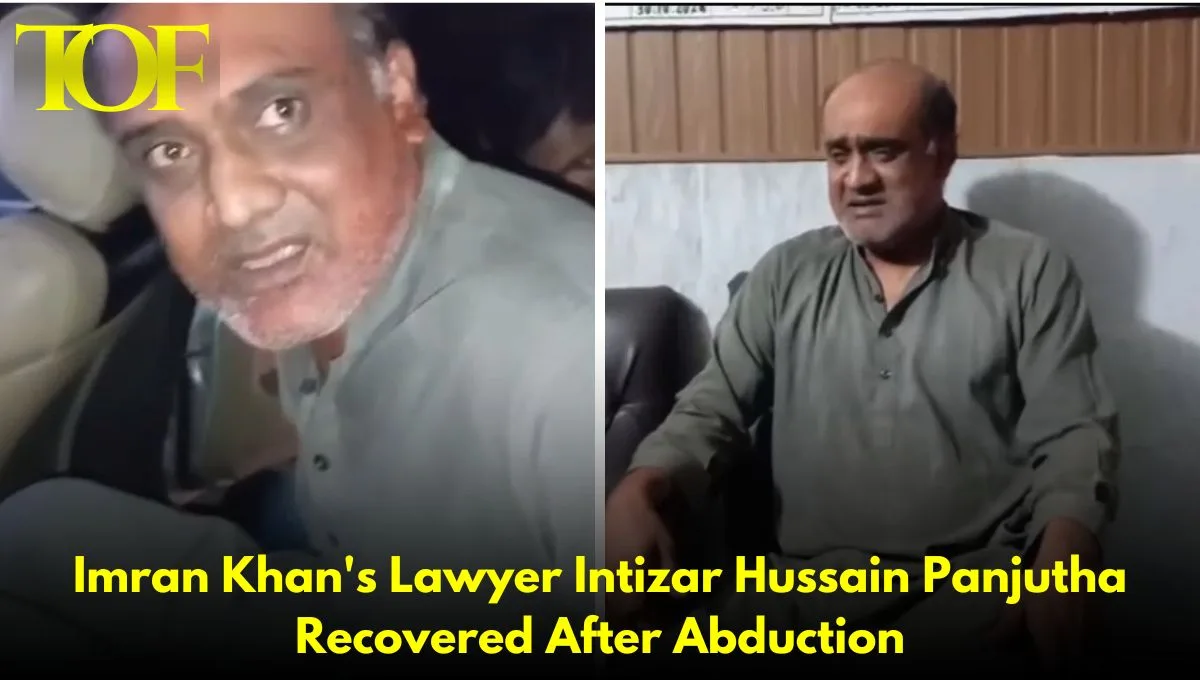The recent abduction and sensational release of Imran Khan‘s lead attorney, Mr. Intizar Hussain Panjutha, has darkened the legal scenario in Pakistan. Panjuta has been known to be as close to the PTI leader as many near a sitting CM. He had vanished without trace on 8th October outside the Islamabad High Court. For almost a month, his family and their supporters had no information regarding this. In protest, the family and the supporters sought a petition before the Islamabad High Court. Attorney General Mansoor Usman Awan first denied the involvement of the state but later assured the court that Panjuta would be freed within 24 hours.
The next scene was like one from a Hollywood thriller. Just hours after the statement by the attorney general, the Attock police stopped a suspicious car and claimed to have exchanged gunfights with its occupants, finding Panjuta tied in the back seat. He later said he had been kidnapped by Pashto-speaking men demanding 20 million rupees for ransom, a demand which his family says they never received.
This case is closely similar in characteristics to some of the previous ones and recalls a few of the old big cases. For example, there was an attempt at assassinating Imran Khan when a video came to public notice last November where the alleged shooter was narrating a story of doing that because of religious reasons, something many could not believe. Such cases cannot be taken in isolation since in most instances the government has been accused of pressurizing lawyers, journalists as well as activists.
The Panjuta case does not merely represent his ordeal. It symbolizes the oppression challenges that democracy faces in Pakistan, where dissenting voices are intimidated and suppressed. Even as the courts press for accountability, the released victims are mum, alleged threats, and torture aside. Critics say that this is a cycle that weakens Pakistan’s democracy and discourages citizens from speaking out against injustices.
For so many people, the case of Intazar Hussain Panjuta raises questions about the future of justice in Pakistan and the scope of freedom for its people.
To Read More: News

